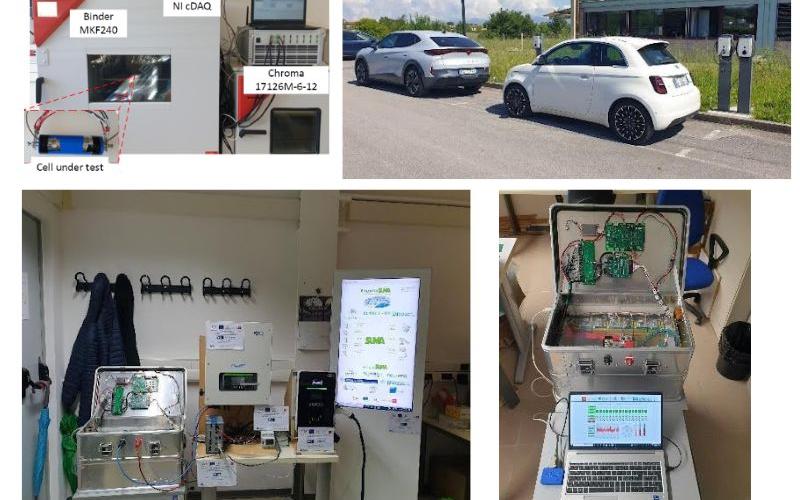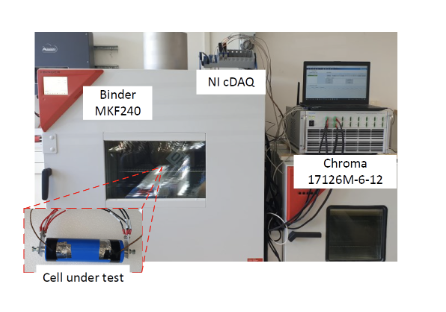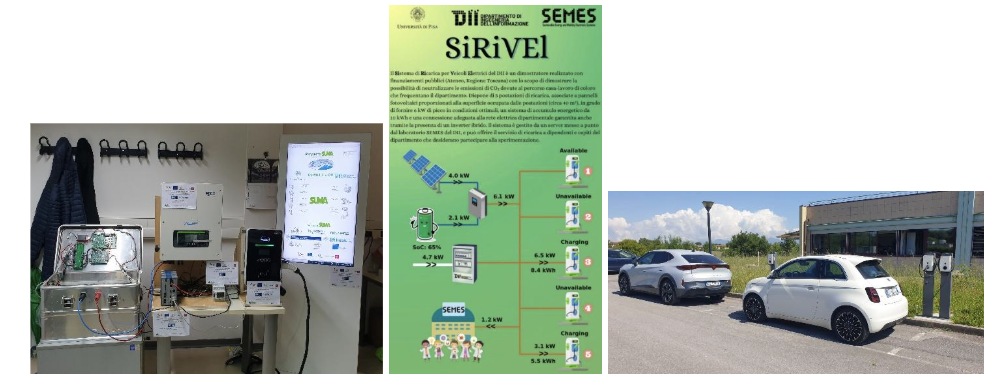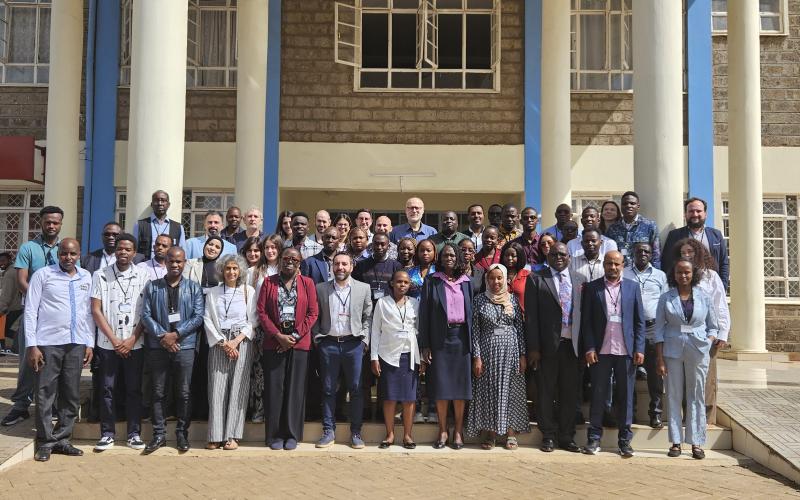In questi giorni il team di bioingegneri composto da Arti Ahluwalia, Carmelo De Maria e Chiara Belmonte si trova a Nairobi per tenere un corso intensivo nell'ambito del progetto Afra Moya, di cui il...
Leggi tuttoSustainable Energy and Mobility Embedded Systems (SEMES) Lab

Energy management is a fundamental part of our everyday lives. Smart and micro grids, renewable energy sources utilization, electric mobility, and battery-based applications have become essential to the way we live, work, and move. Electric energy storage systems play a central role in these environments and have a strong impact on application performance. Our laboratory focuses on studying, developing, and characterizing novel batteries and energy management systems to continuously enhance the usability, sustainability, and efficiency of these vital technologies.
Battery Management System design
One of the main research activities of our laboratory is the design of Battery Management Systems (BMS). A BMS is used to monitor, control, and optimize battery operation, ensuring it performs under the best possible conditions. Our research on BMSs aims to both improve application functionalities and enable deeper utilization of current technologies. Novel internal state estimation algorithms, such as State of Charge (SoC) and State of Health (SoH), are developed, tested, and compared across different applications. Innovative hardware and software BMS architectures are also explored to continuously enhance key functionalities, including measurement, balancing, and communication. Moreover, we are investigating the repurposing of exhausted electric vehicle batteries for second-life applications, leveraging advanced techniques such as dynamic balancing. Reusing lithium-ion batteries not only supports the wider adoption of electric vehicles by increasing the residual value of batteries but also helps mitigate the economic and ethical challenges associated with the lithium-ion battery supply chain.

Novel battery technologies
Our laboratory continuously explores and characterizes novel battery technologies to identify and analyze viable alternatives to conventional lithium-ion batteries. This research activity is crucial to strategically address the growing demand for energy storage systems while mitigating the risks of raw material shortages and the ethical concerns related to certain elements in the battery supply chain. Recent work in this area focuses on sodium-ion batteries, which offer improved safety, greater material abundance, and therefore lower costs compared to lithium-ion technologies. Aging studies and characterization tests have been conducted to highlight the differences with lithium-ion batteries and to develop dedicated battery management systems.

Energy management in smart-grid
Electric vehicles and distributed renewable energy generation pose significant challenges to existing power grid infrastructures. For this reason, novel smart grid architectures and innovative energy flow management systems are being studied. Within this research area, our laboratory has implemented an experimental Electric Vehicle Charging Facility for the users of the Department of Information Engineering (SiRiVEl – Sistema Ricarica Veicoli Elettrici). The facility primarily targets the home-to-work charging needs of department users and is equipped with five Level 2 AC chargers, a 6.6 kWp photovoltaic system, and 10 kWh of energy storage. The SiRiVEl facility enables us to investigate advanced recharging strategies and energy management approaches by complementing theoretical and simulation-based studies with real- world testing and experimental validation.

People:
Roberto Saletti (coordinator), Roberto Roncella, Federico Baronti, and Roberto Di Rienzo
Lab Equipment:
- Standard electronic laboratory instruments, including oscilloscopes, power supplies, electronic
loads, waveform generators, and power analyzers.
- Climate chambers with accuracy temperature and humidity control.
- Battery-specific instruments, such as source/measure units, a 16-channel battery cell cycler for cell
characterization, an 8-channel battery module cycler for module testing, and a battery cell
impedance meter.



